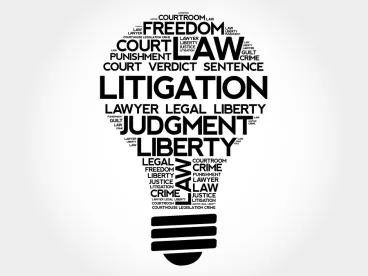Several interesting cases this year involve waiver and privilege jurisprudence. Perhaps none more sharply underscores the importance of a well-written proffer agreement when making disclosures to the government than a decision by the Fourth Circuit. The court’s analysis depends in part on the operation of Fed. R. Evid. 502.
Background
Rule 502 governs — and limits — the scope of any waiver of the attorney-client privilege and work product protection when a party makes a disclosure in a federal proceeding or to a federal office or agency. The matter stems from a government investigation into whether a company and its subsidiaries violated certain federal laws. The company and the government entered into several agreements permitting employees of the company to share information that would otherwise be protected by the attorney-client privilege and work product protection.
Terms of the Parties’ 502(e) Agreement
Parties may contract to limit the effect of a party’s disclosure on the disclosing party’s right to assert privilege in future proceedings. The Fourth Circuit’s opinion focuses on the agreement that allowed the government to interview the former General Counsel of a company subsidiary. Because this matter occurred in the context of a grand jury investigation, the court referred to the company only as X Corp. The portions of the agreement operative to the court’s analysis are:
- Please be advised that, to the extent any Protected Information is provided to the Fraud Section or EDVa pursuant to this agreement, [X Corp. and its directors] do not intend to waive the protection of the attorney work product doctrine, attorney-client privilege, or any other privilege.
- The Fraud Section and EDVa will maintain the confidentiality of any Protected Information provided to the Fraud Section and EDVa pursuant to this agreement and will not disclose such information to any third party, except to the extent that the Fraud Section or EDVa determines in its sole discretion that disclosure would be in furtherance of the Fraud Section’s or EDVa’s discharge of its duties and responsibilities or is otherwise required by law.
- The Fraud Section and EDVa each agree that it will not assert that the disclosure of any Protected Information by [Doe] provides the Fraud Section or EDVa with additional grounds to subpoena other privileged materials from [X Corp. and its directors] or [Doe] although any grounds that exist apart from such disclosure shall remain unaffected by this agreement.
Years into the investigation, the government subpoenaed the General Counsel to testify before a grand jury about certain statements made during the General Counsel’s interview. The company moved to intervene and quash the subpoena. The district court denied the motion and the company timely appealed. The sole question for the court was whether the agreement preserved the company’s attorney-client privilege and work-product protection to such a degree that the company may prevent the General Counsel from testifying before a grand jury.
Fourth Circuit Court’s Analysis
Finding in favor of the company, the court’s opinion draws as much—if not more—from standard principles of contract interpretation as it does from Fed. R. Evid. 502. The court rejected the government’s contention that the first clause of the agreement preserved the company’s privilege only against potential third-party requests for disclosure. The court found this argument unpersuasive, saying, “[d]isclosure agreements, such as the one here, bind only the parties to the agreement, not third parties.” Id. at *10-11, citing Fed. R. Evid. 502(e). Instead, the court found that the first clause of the agreement preserved the company’s privileges notwithstanding the initial disclosure, which means the government could not compel disclosure of protected information in judicial proceedings.
The second clause of the agreement was found to qualify only the government’s promise to keep the information confidential. “The Second Clause’s exception allows the Government to share the Protected Information in certain circumstances out of court, but it does not permit the Government to compel disclosure of that information in court.” Id. at *10.
Nor was the court persuaded by the government’s interpretation of the agreement’s third clause, which the government argued presumes a waiver of privilege indicating that the preceding paragraphs do not preserve the company’s privileges. The court found that the first clause indeed operates to preserve privileges as to disclosed information while the third clause preserves privileges as to other related information.
The opinion concludes by highlighting several important policy considerations. “Cooperation between private entities and the Government furthers the truth-finding process. . . . Declining to hold the Government to the terms of an agreement it struck would discourage private entities from cooperating with the Government in the future.” Id. at *12-13.
Conclusion
A fundamental purpose of an agreement is to provide security, definition, and guidance for mutual conduct, especially when things get rough. Fed. R. Evid. 502(e) is intended to embody the “well-established proposition that parties can enter into an agreement to limit the effect of waiver by disclosure between or among them.” See Comment to Fed. R. Evid. 502, Subdivision (e). But an agreement between parties to federal litigation on the effect of disclosure in that federal proceeding is binding only on the parties to the agreement unless it is incorporated into a court order. Fed. R. Evid. 502(e).
The uniqueness of this case lies not only in the length of the government’s investigation—which the opinion describes as “several years ago”—but that the issue reached the merits of a court opinion. This case underscores the importance of road-mapping disclosures to the government to protect against unnecessary waiver of privileges and evidentiary protections in subsequent litigation.




 />i
/>i

